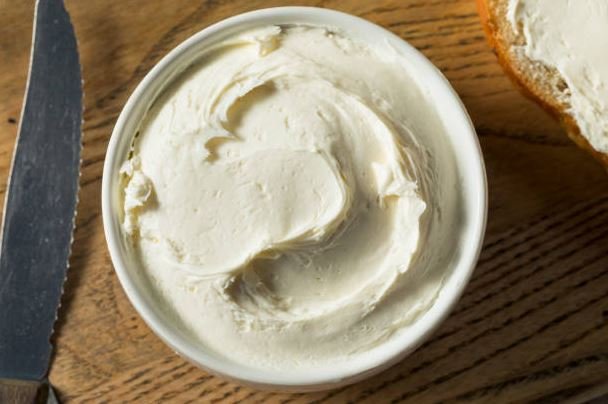Pasta is a pantry staple in many households, and spaghetti is a popular choice due to its versatility and delicious taste. Whether you’re a pasta enthusiast or someone who occasionally enjoys a plate of spaghetti, it’s essential to understand how long unopened spaghetti lasts and how to determine if it’s still safe to consume.
In this blog post, we’ll delve into the shelf life of unopened spaghetti, discuss its expiration date, signs of spoilage, and best practices for storage. So, let’s dig in and uncover the secrets of unopened spaghetti!
How Long Does Spaghetti Last Unopened?
Unopened spaghetti typically has a remarkably long shelf life. When stored properly in a cool, dry place, such as a pantry or cupboard, unopened spaghetti can retain its quality for an extended period.
The shelf life of unopened spaghetti varies depending on the brand and packaging, but it usually ranges from one to two years. Many pasta manufacturers stamp a “best by” date on the packaging, which indicates the estimated period during which the product is at its peak quality. It’s important to note that the “best by” date is different from an expiration date.
Can I Use Unopened Spaghetti Past Its Expiration Date?
The expiration date on a package of unopened spaghetti is a guideline for optimal quality rather than an indication of safety. In most cases, unopened spaghetti can still be used and enjoyed past its expiration date as long as it has been stored properly and shows no signs of spoilage.
However, using your judgment and sensory evaluation techniques is essential to determine if the spaghetti is still good.
Does Unopened Spaghetti Go Bad?
Unopened spaghetti does not necessarily go bad if stored correctly. If the packaging remains intact and the spaghetti is not exposed to moisture or pests, it can maintain its quality for an extended period. However, over time, unopened spaghetti may experience changes in texture and flavor, becoming slightly stale. These changes do not necessarily render the spaghetti inedible but may affect the overall taste and texture of the cooked pasta.
How Can I Determine if Unopened Spaghetti Is Still Good to Eat?
To determine if unopened spaghetti is still good to eat, you can follow these steps:
Step 1: Inspect the packaging
Check the packaging for any signs of damage, such as tears, punctures, or insect infestation. If the packaging appears compromised, it’s best to discard the spaghetti to avoid the risk of contamination.
Step 2: Evaluate the appearance
Take a close look at the unopened spaghetti. It should have a consistent color and not show any signs of discoloration, mold growth, or unusual spots. If you notice any of these signs, it’s advisable to discard the product.
Step 3: Assess the aroma
Open the package and take a sniff. Unopened spaghetti should have a neutral or slightly wheat-like aroma. If you detect any off smells, such as a rancid or moldy odor, it’s a clear indication that the spaghetti has gone bad and should not be consumed.
Step 4: Check for signs of pest infestation
Inspect the spaghetti for any signs of pest activity, such as webbing or droppings. If you notice such signs, discarding the product to prevent any potential health risks is best.
Following these simple steps ensures that your unopened spaghetti is still safe to consume and enjoy.
Are There Any Signs that Unopened Spaghetti Has Spoiled?
Yes, several signs indicate unopened spaghetti has spoiled. Here are some common indicators of spoilage:
- Examine the Packaging: The first step in assessing the freshness of unopened spaghetti is to examine its packaging. Look for any signs of damage, such as tears, punctures, or openings. Damaged packaging can lead to contamination, allowing air, moisture, or pests to enter, which may spoil the spaghetti. If the packaging appears compromised, it’s best to discard the product.
- Check for Unusual Odors: A reliable way to identify spoiled spaghetti is through its odor. Give the unopened package a gentle sniff. Fresh spaghetti should have a neutral or slightly wheat-like smell. Detecting any unusual or foul odors, such as a sour or rancid scent, may indicate that the spaghetti has gone bad. Trust your sense of smell and discard the product if you notice any off-putting odors.
- Inspect for Mold or Discoloration: Visual cues can be another indicator of spoilage. Take a close look at the unopened spaghetti. If you notice any mold growth, discoloration, or dark spots, it’s a clear sign that the product has spoiled and should not be consumed. Mold growth can range from fuzzy patches to green, black, or white spots. Discoloration can include a change in the color of the pasta or the appearance of dark streaks. In any case, it’s best to err on caution and discard the spaghetti if you observe any visual abnormalities.
- Consider the Expiration Date: While unopened spaghetti generally has a long shelf life, it’s essential to check the expiration date printed on the packaging. Manufacturers provide these dates to indicate the period during which the product is expected to retain its quality and freshness. If the expiration date has passed, it’s advisable to discard the unopened spaghetti, even if there are no visible signs of spoilage. Consuming expired food can pose health risks.
- Assess Texture and Consistency: The texture and consistency of unopened spaghetti can also reveal signs of spoilage. The pasta should feel dry, firm, and free from clumps. If you notice any stickiness, clumping, or an excessively soft texture, it could indicate that moisture has entered the package, leading to potential spoilage. In such cases, it’s best to discard the unopened spaghetti to avoid any foodborne illnesses.
Can I Store Unopened Spaghetti for an Extended Time?
Indeed, you can store unopened spaghetti for an extended time, especially if you plan to stock up during sales or want a long-term supply. To maximize the shelf life of unopened spaghetti, consider the following storage tips:
- Keep it in a cool, dry place: Store unopened spaghetti in a cool area away from direct sunlight and heat sources. Excessive heat and moisture can accelerate the degradation of the product.
- Seal the package properly: If the original packaging is resealable, ensure it is tightly sealed to prevent exposure to air and moisture. Alternatively, transfer the spaghetti to an airtight container or resealable bag.
- Avoid temperature fluctuations: Fluctuating temperatures can cause condensation, leading to spoilage. Aim to store the spaghetti in a location with a consistent temperature.
- Follow FIFO (First In, First Out): When adding new packages of unopened spaghetti to your pantry, place them behind the existing stock. This practice ensures that you use the oldest packages first, minimizing the chances of them going unused and expiring.
Can I Freeze Unopened Spaghetti to Extend its Shelf Life?
Yes, you can freeze unopened spaghetti to prolong its shelf life. Place the unopened package in a freezer-safe bag, ensuring all the air is squeezed out before sealing it.
Frozen, unopened spaghetti can maintain its quality for up to a year or longer. Thaw it in the refrigerator before using it.
Can Unopened Spaghetti Develop an Off Taste Over Time?
While unopened spaghetti can retain its quality for an extended period, it may develop a slightly stale or off-taste over time. This is due to natural oxidation and moisture absorption. However, if the spaghetti has been stored properly and shows no signs of spoilage, it should still be safe to consume.
Is it Necessary to Cook Unopened Spaghetti Before its Expiration Date?
No, cooking unopened spaghetti before its expiration date is unnecessary. As long as the packaging remains intact and the spaghetti shows no signs of spoilage, you can store it until you’re ready to use it. However, keep in mind that the quality may diminish slightly over time.
Conclusion
Unopened spaghetti can last for a significant amount of time if stored properly. While the expiration date on the package provides a general guideline for optimal quality, unopened spaghetti can still be used beyond that date if it shows no signs of spoilage. By inspecting the packaging, evaluating the appearance, aroma, and texture, and checking for signs of pest infestation, you can determine if the unopened spaghetti is still safe to consume. Remember to store it in a cool, dry place and follow proper storage practices to maintain its quality.
So, next time you find a package of unopened spaghetti tucked away in your pantry, don’t be too quick to discard it. Give it a thorough evaluation, and if it passes the sensory tests, go ahead and cook yourself a delicious plate of spaghetti.



















